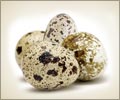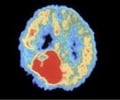It has been found that maternal obesity may cause marked changes in the gastrointestinal microflora's composition and its function of the offspring.
The gastrointestinal microflora consists of multiple species of microorganisms that live in the digestive tracts of animals and assists the host in digestion. An imbalance in an individual's microflora is suspected to contribute to the development and persistence of obesity. An increase in firmicutes to bacteriodetes ratio is a trademark of obesity and is linked to an increase in gastrointestinal permeability, systemic inflammation and weight gain. Results from this new study show that the "obese" microflora may be passed from a mother to offspring. In rodents, offspring from obese mothers exhibited an increase in firmicutes to bacteriodetes ratio and an increase in gastrointestinal permeability. This is a unique finding because it suggests that there are non-genetic factors that could be passed from a mother to offspring to increase the susceptibility to obesity.
Today about 30% of women entering pregnancy are obese and their children are at greater risk for obesity and associated metabolic disorders. "Modulation of microflora composition is fairly easy and non-invasive and may be of benefit for these children," says Dr. de la Serre. Her research team will continue these studies to investigate whether this may be a viable treatment option and promote the health of the offspring.
Source-Eurekalert














